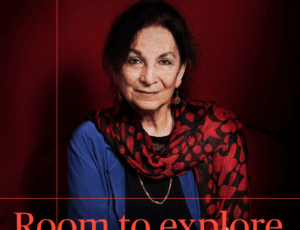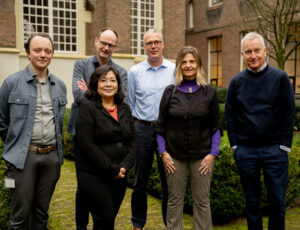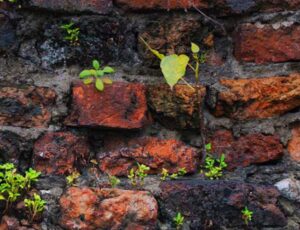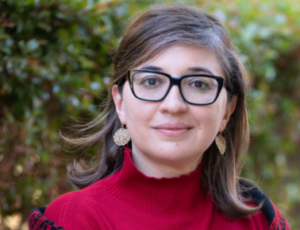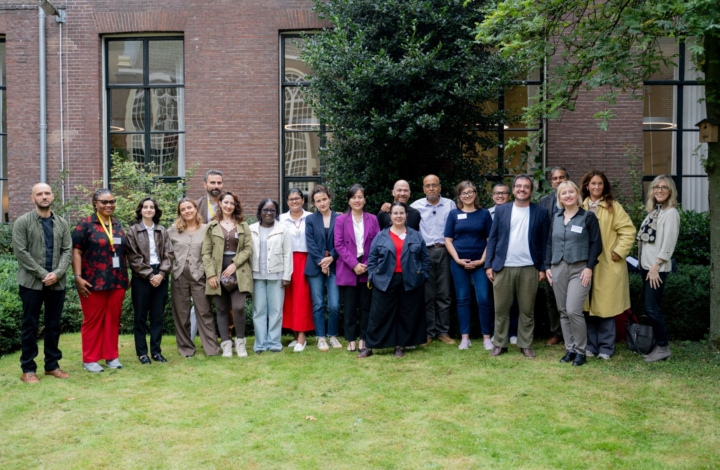
NIAS welcomes fellows for 2025–2026
a haven for free, critical, and independent scholarship
17 July 2025In a time when the foundations of democracy are increasingly under threat, NIAS stands firm in its mission to provide a haven for free, critical, and independent scholarship. “Authoritarian leaders do not like to be contradicted, and places for freethinkers are always first in line to be targeted,” says NIAS director Jan Willem Duyvendak. “This is why institutions like ours—where knowledge is pursued without fear—must be protected and strengthened as vital pillars of democracy.”
NIAS fosters the kind of collaborative, and intellectually bold research that societies need to understand and navigate today’s global challenges. At NIAS, fellows are given the rare chance to pause, rethink, and engage in open dialogue with colleagues from vastly different disciplines and contexts.
This year’s cohort includes political theorists, sociologists, historians, artists, journalists, heritage scholars, and philosophers—working on topics that range from the future of the welfare state and social productivity, to indigenous climate justice and contested heritage, to social imaginaries of worthiness, AI in the health sector, belonging, and a measurement toolbox for neuroscience. Each fellow contributes to a rich ecosystem of shared inquiry grounded in freedom of thought and mutual respect.
Explore the digital profiles of our fellows below, or download the Fellows Booklet 2025–2026.
NIAS as a Safe Haven
NIAS takes great pride in its Safe Haven Fellowship Programme, which offers protection and academic continuity to scholars at risk. Aimed at researchers from conflict zones, it provides a secure environment to continue their work. We remain committed to supporting scholars from regions such as Gaza, where the devastation of academic infrastructures has brought research and education to a halt, as well as from other parts of the world facing similar challenges.
Building intellectual alliances across pillars of democracy.
NIAS’s approach to academic freedom recognises that science, the judiciary, the press, and civil society are interdependent pillars of democracy. In that spirit, the institute does not shy away from reflecting on its public responsibilities. As Duyvendak recently stated: “The question is not whether to be political, but how to be engaged in a troubled world.”
In welcoming the 2025–2026 fellows, NIAS reaffirms its belief in strong, autonomous institutions and international solidarity among thinkers. Here, inquiry is not only protected—it is celebrated as essential to democratic resilience.
List of Fellows for the academic year of 2025 – 2026
- Hazem Abu-Orf – Circular urbanism in fragile contexts – Safe Haven Fellow
- Hayal Akarsu – Force experts: afterlives of police reforms in Turkey
- Felicity Apaah – Nana Kow Ackon V: the making of a ‘woman king’ in Ghana
- Panggah Ardiyansyah – Evocative fragments: archaeological knowledge production for Sendang Duwur and its dispersed objects – NIAS-NIOD-KITLV Fellow
- Rita Baroud – Citizen reporting from Gaza: a lifeline for truth – Safe Haven Fellow
- Francesco Battaglia – Towards an embodied theory of brain function – Distinguished NIAS Lorentz Fellow
- Aleksandar Bošković – Nothing (:) Made in Yugoslavia
- Hilde Bras – Reproductive legacies: missionary medicine and demographic change in Southeast Africa, 1890 – present
- Leandro Matthews Cascon – Cultivating objects: connecting indigenous cassava agriculture of Suriname to its materialities through a study of colonial collections in the Netherlands – NIAS-NIOD-KITLV Fellow
- Tita Chico – Devices of enlightenment: a literary history of technology
- Roxana Coman – Collecting Islamic artefacts and searching for a national identity in British Mandate Jerusalem: Marcu Beza between neo Byzantinism and exoticism.
- Ganga Rajinee Dissanayaka – Transcending borders: cultural mobility in motion – NIAS-NIOD-KITLV Fellow
- Trang Duong – How knowledge on past coastal flood events can help shape a safer future for coastal communities – L’Oréal-UNESCO For Women in Science Fellow
- Ahmed El Shamsy – The early history of Sunni Islam
- Jolien Francken – Measurement matters: developing a philosophical measurement toolbox for neuroscience – L’Oréal-UNESCO For Women in Science Fellow
- Cecilia Hendrikx – As it appears – Artist in residence
- Oleksandra Moskalenko – Fiscal and monetary policies in wartime Ukraine: was it the path to a resilient economy with international assistance? – Duisenberg Fellow
- Ngozika Anthonia Obi-Ani – Cultural memory and the legacy of the Nigeria-Biafra war in Southeast Nigeria – Iso Lomso Fellow
- Zehra Ömeroğlu – The Case: a graphic novel on censorship, resilience and artistic resistance in the face of political repression – Safe Haven Fellow
- Rahul Rao – What whales want: a whale-oriented world order
- Femke Roosma – What’s next for the Dutch welfare state? Unpacking public support for social policy alternatives – Instituut Gak Fellow
- Areej Sabbagh-Khoury – Settler colonial citizenship between ethno-nationalist and neoliberal governmentality: The case of the Palestinians in Israel
- Philip Schleifer – Business and the nature crisis: analysing corporate discourse with large language models
- Džemila Šero – Heritage biometrics – AI for the analysis of fingerprints on artworks – L’Oréal-UNESCO For Women in Science Fellow
- Romy van Baarsen – People and borders – Journalist in Residence
- Marjolijn van Heemstra – The art of dusking: reviving the forgotten practice of watching the world go dark – Writer in Residence
- Iris Walraven – Lung cancer patients with low health literacy: explainable generative AI for shaRed decision-making: the CLEAR-study – L’Oréal-UNESCO For Women in Science Fellow
- Arjen de Wit – Social productivity: towards a labour market of doing good – Instituut Gak Fellow
- Rebecca Wynter – Policing mental disorder in London and Amsterdam since 1945: engaging with lived experience – Golestan Fellow
- Jolene Zigarovich – Legal bodies: women, economies, and the law in the eighteenth-century novel
Theme groups
NIAS Lorentz Theme Group | Hybrid agencies: interacting with biological and artificial systems | Semester 1
- Anna Ciaunica – Interacting with artificial selves and bodies in natural and virtual environments – NIAS Lorentz Theme Group Coordinator
- Ruud Hortensius – Hybrid families: towards an understanding of families in the age of AI – NIAS Lorentz Theme Group Fellow
- Michael Levin – Hybrid agencies: interacting with biological and artificial systems – Advisor to the NIAS Lorentz Theme Group “Hybrid Agencies”
NIAS Theme Group | Ecology and Belonging: In Search of a New Political Space | Semester 2
- Timothy Stacey – A future we can belong to – NIAS Theme Group Coordinator
- Tanja van Hummel – Towards a sustainable, harmonious, and open bonum commune – NIAS Theme Group Fellow
- Jacob McLean – Ecology and belonging: in search of a progressive narrative – NIAS Theme Group Fellow
- Shivant Jhagroe – Deep ecology, decolonisation and belonging – NIAS Theme Group Fellow
- Stanzin Namgail – Indigenous perspectives on the relationship between ecology and belonging in the Himalaya – NIAS Theme Group Fellow
NIAS Theme Group | Why do adults change their beliefs? | Semester 2
- Katerina Manevska – Understanding adult belief change: the interplay between individual and societal conditions – NIAS Theme Group Coordinator
- Mark Brandt – A comprehensive map of the threat-politics relationship – NIAS Theme Group Fellow
- Paul Vinod Khiatani – Why do adults change their beliefs? Building a research infrastructure for a cross-national study – NIAS Theme Group Fellow
